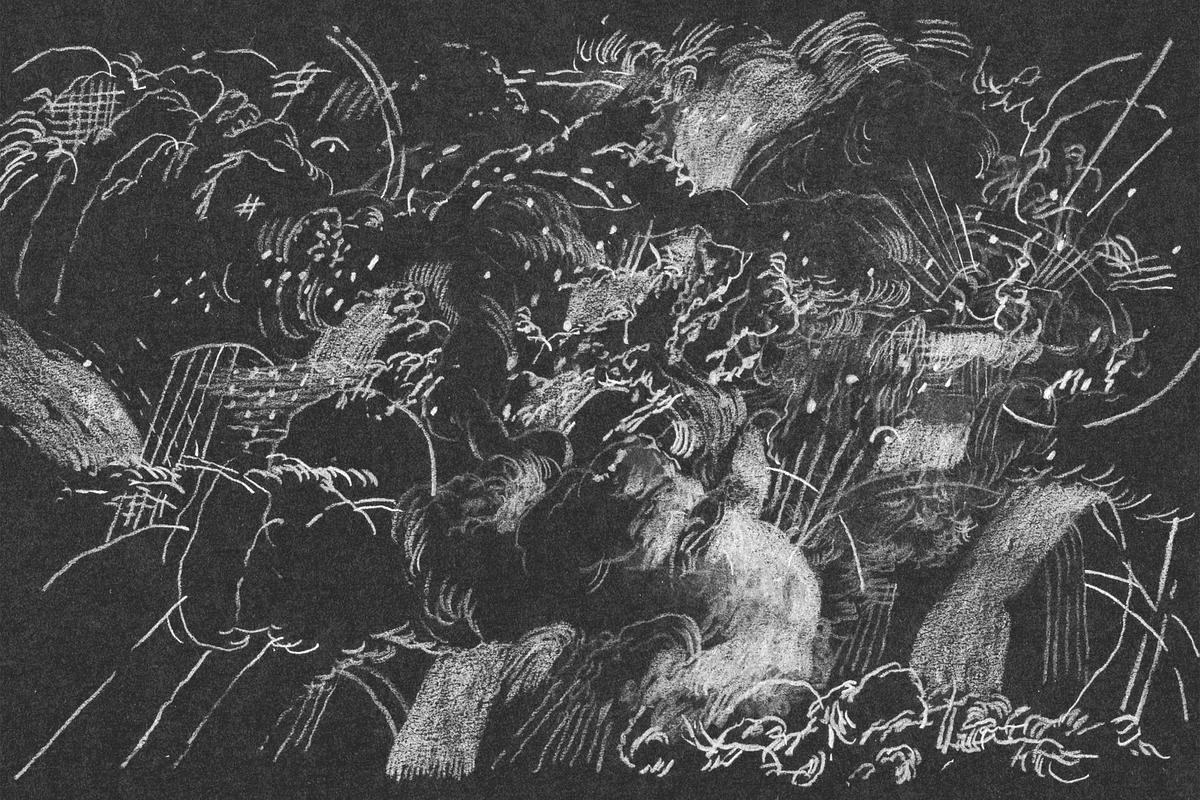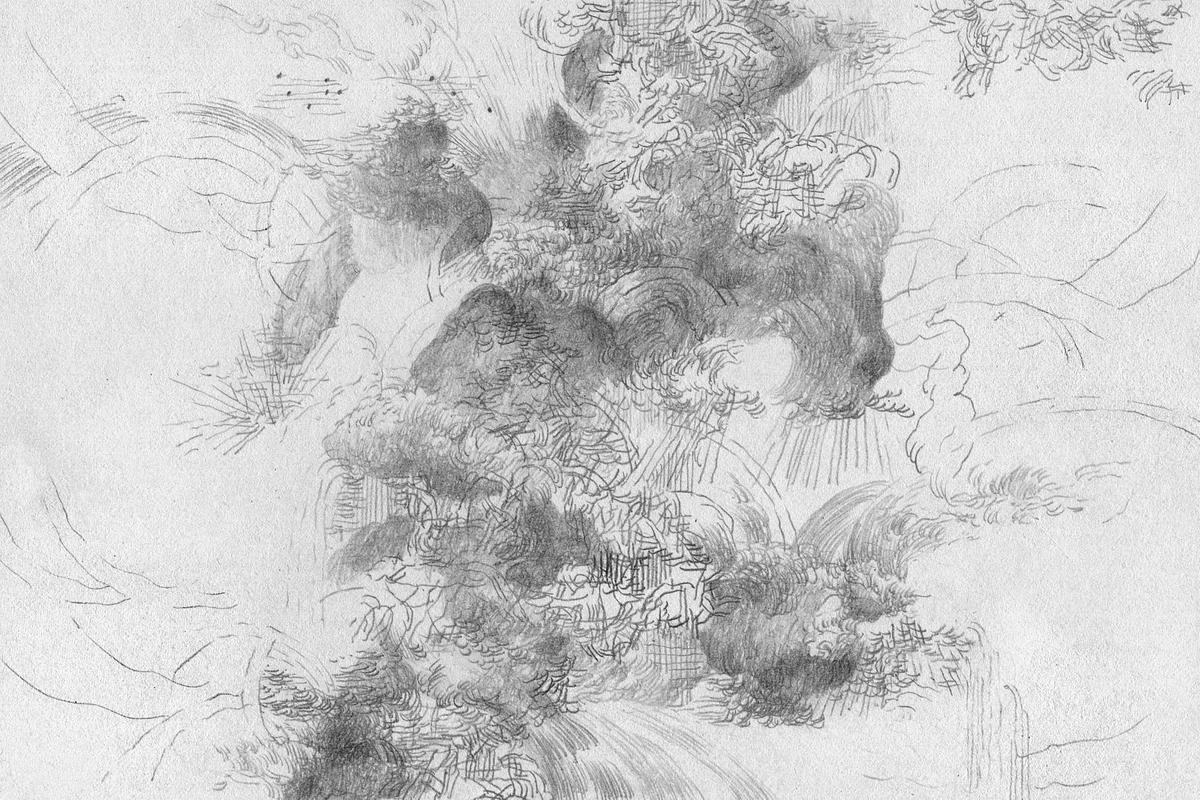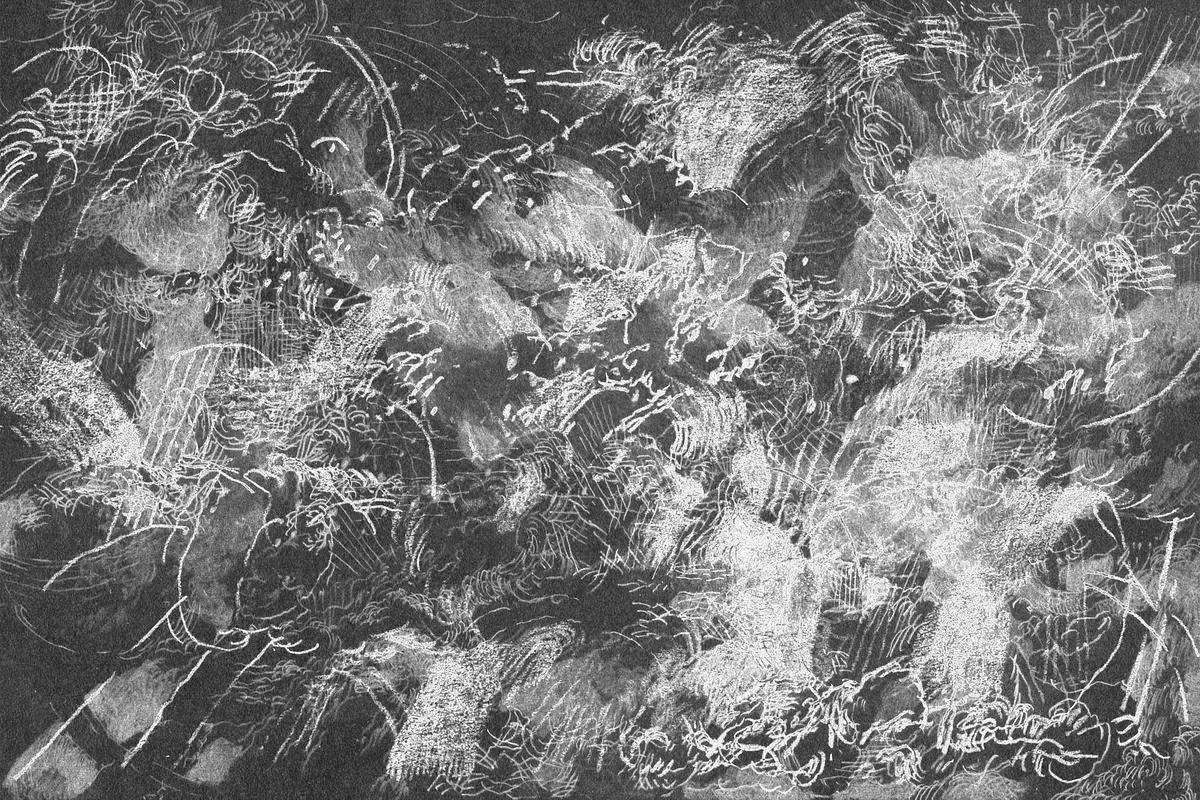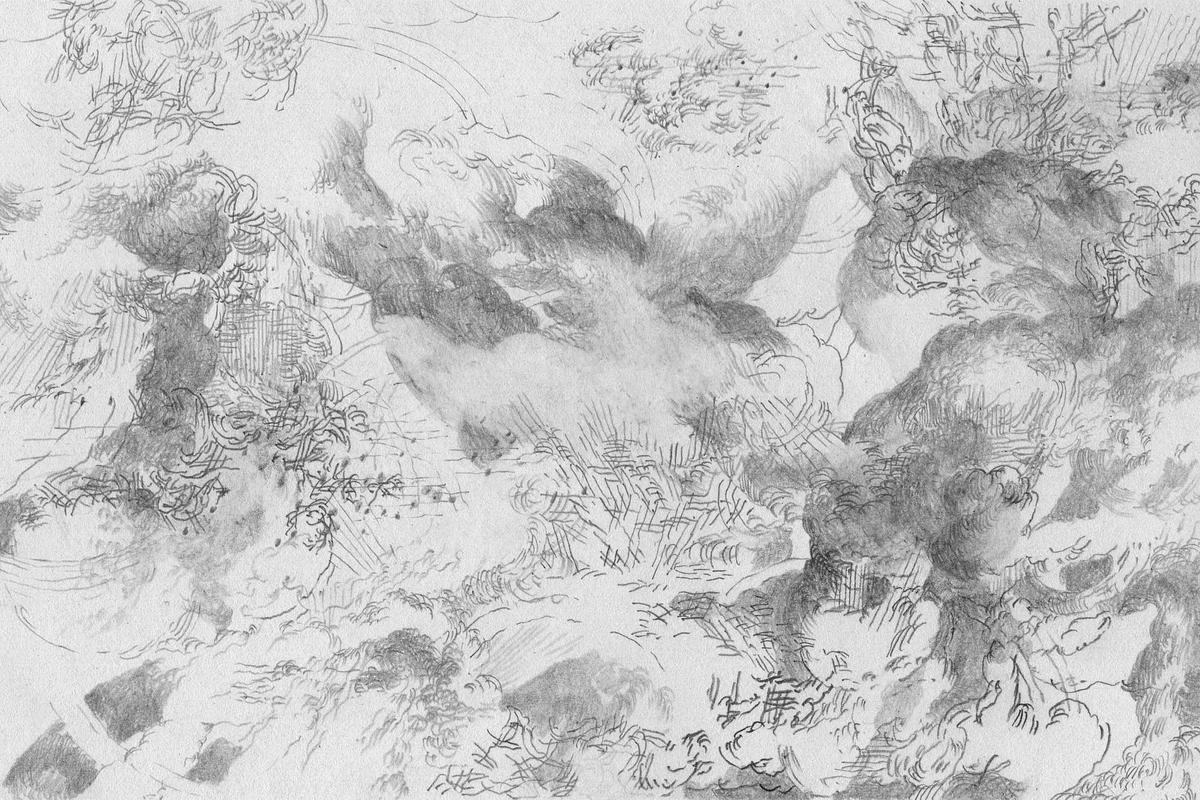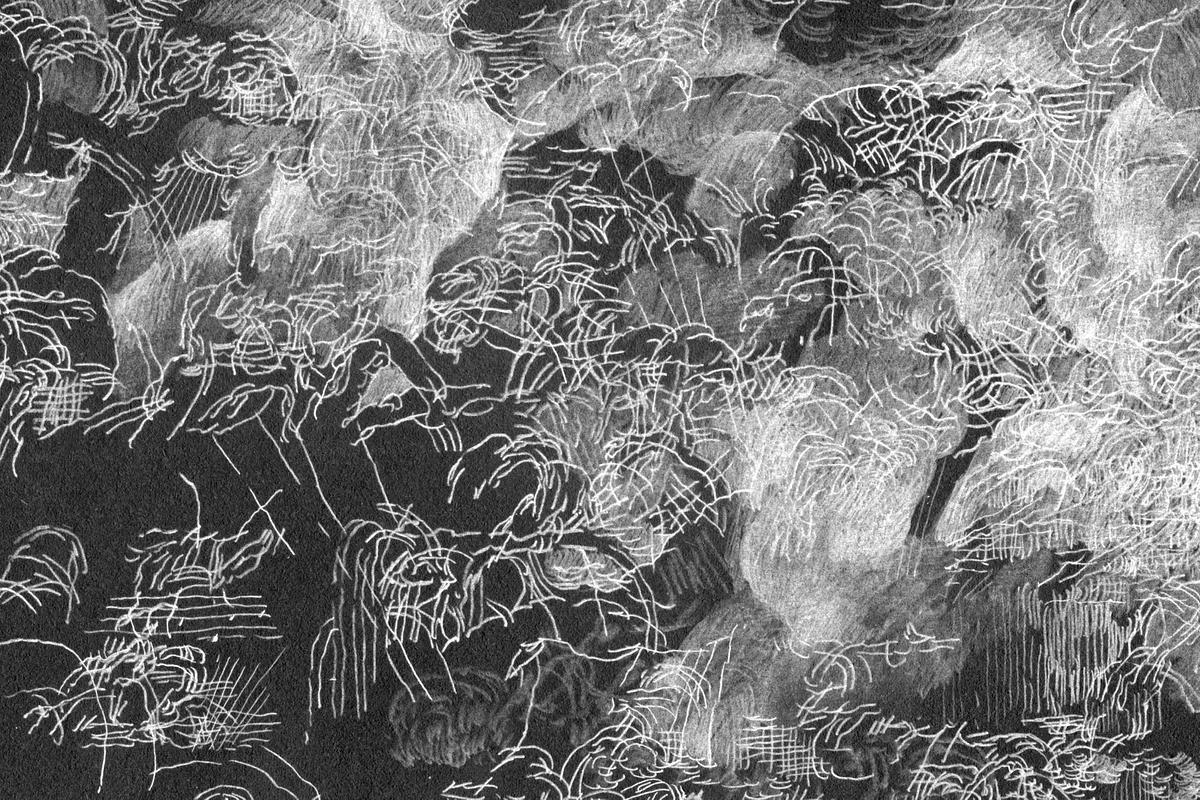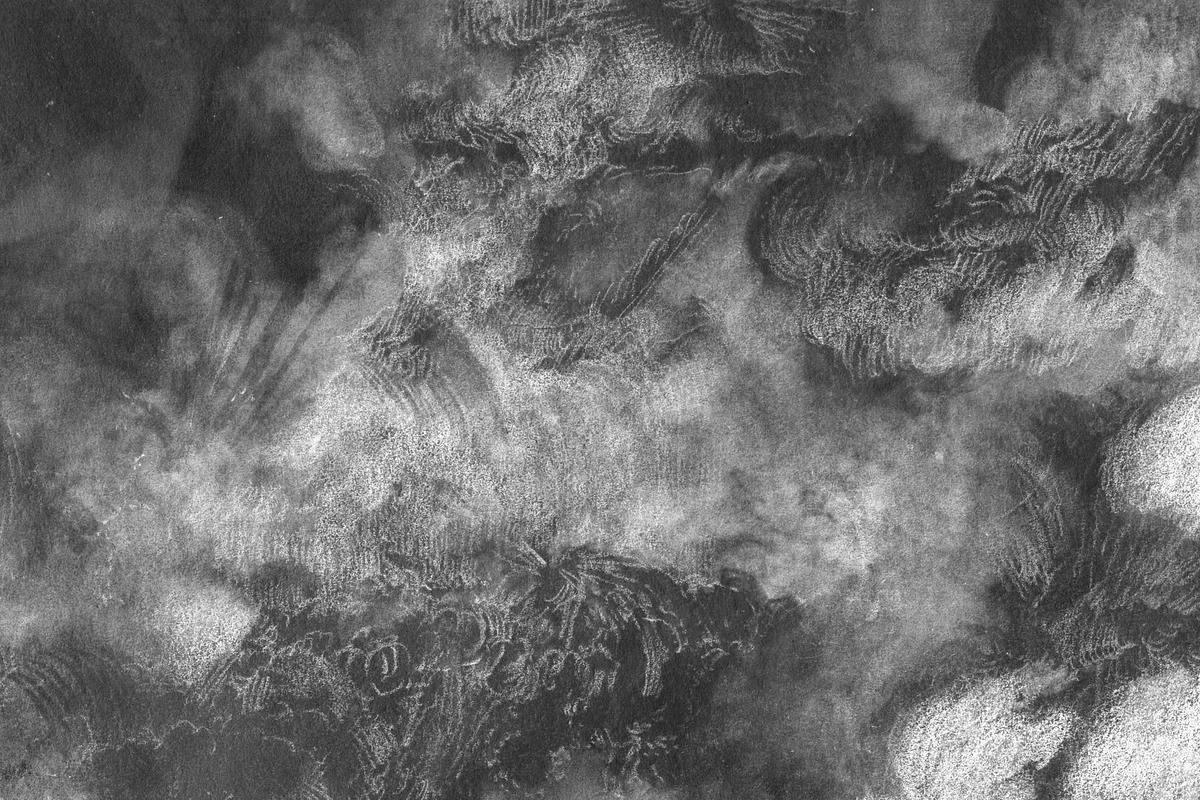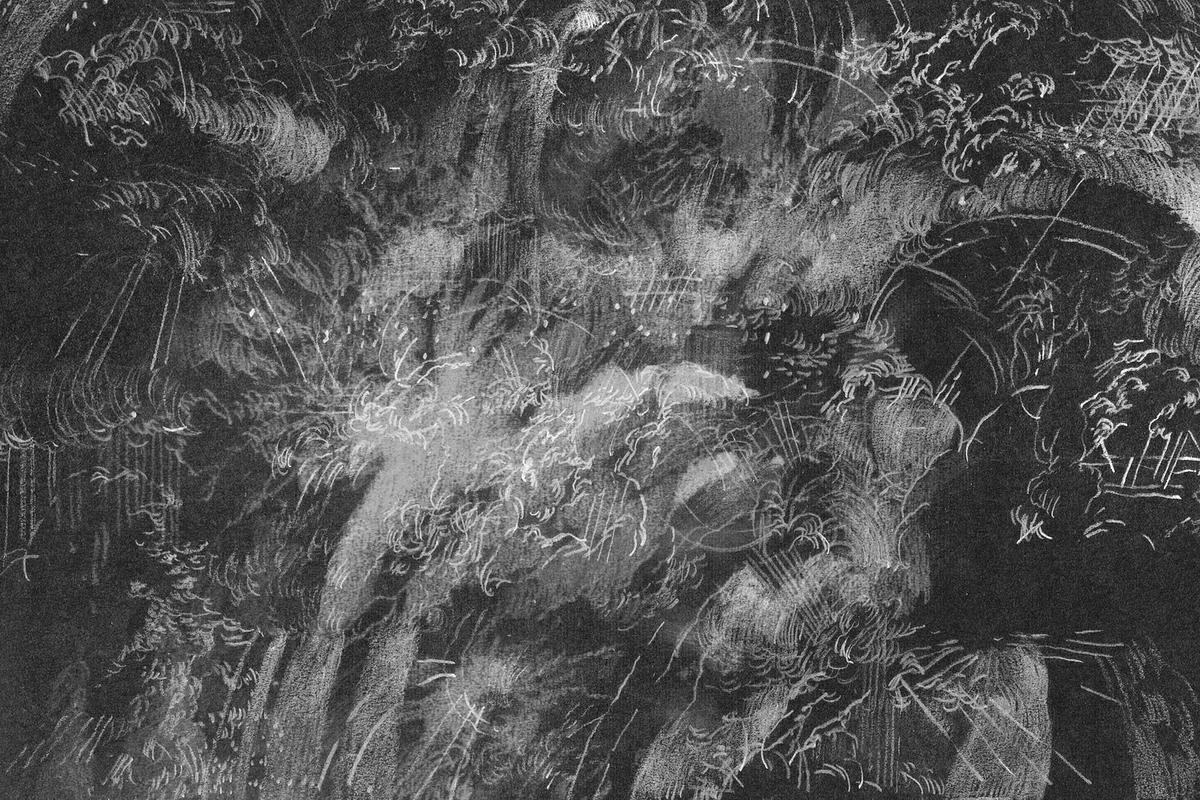
The world premiere of a reworked Anton Bruckner’s Ninth Symphony, a concert to mark the centenary of Pierre Boulez, Battleship Potemkin with a contemporary soundtrack, and other extremes in the new music programme at GES 2.
The world premiere of a reworked Anton Bruckner’s Ninth Symphony, a concert to mark the centenary of Pierre Boulez, Battleship Potemkin with a contemporary soundtrack, and other extremes in the new music programme at GES 2.
For Anton Bruckner (1824–1896), the great Austrian symphonist, composition was a mystical experience: to write music was to write a treatise on the whole of creation. His Ninth Symphony, conceived as a ritual of farewell to the Romantic era, to life, to faith, was to be the culmination of these spiritual quests. The score, dedicated “Dem lieben Gott” (“To Beloved God”), remained unfinished: conscious of the grandeur of his project, Bruckner worked on it for nine years and completed only the first three movements, lasting more than an hour, before his death. The transcendent scale and open form of the Ninth continue to challenge musicians and listeners to this day, turning each performance into an exploration of the limits of aesthetic expression.
Illustration: Anastasia Fillipova
To the age its art,
To art its freedom.
— Ludwig Hevesi,
inscription on the façade of the Vienna Secession
Going beyond the conventional, existing on the border between the possible and the impossible, radically overloading and reloading musical language, the world premiere of a new version of Bruckner’s unfinished symphony, created by composer Boris Filanovsky as a commission for
The Soldier’s Tale, composed in 1918, at the end of the First World War, was Igor Stravinsky’s rebellion against the operatic megalomania of the turn of the nineteenth and twentieth centuries. The composer invented a fundamentally new model for musical theatre: instead of choir and soloists, a narrator-protagonist; instead of a symphony orchestra, a chamber ensemble of just seven performers; instead of lavish scenography, the aesthetics of street performance or a travelling circus. It was a radical departure, which pointed the way towards contemporary music.
Stravinsky and his librettist, Charles Ramuz, took the storyline for their composition from Aleksandr Afanasyev’s collection of Russian folk tales. The music and words tell of a broken reality, the impossibility of returning to one’s homeland and the irretrievable loss of a former way of life. Behind the modernist façade there lies a romantic leitmotif of nostalgia and mal du pays, which lends universal resonance to the work.
“My original idea was to transpose the period and style of our play to 1918, to endow it with several nationalities and none,” the composer said years later. In 1962, during his first and only visit to the USSR, Stravinsky remarked: “I have spoken Russian all my life, I think in Russian. Perhaps this is not immediately apparent in my music, but it is latent there; a part of its hidden nature.”
Stravinsky’s mélange of Russian and European, past and present, had been prefigured in a very different way some seventy years earlier when the young Johannes Brahms composed Souvenir de la Russie, a set of arrangements for piano of popular Russian folk songs translated into the language of the European salon. But are geographical and cultural aspects really of importance in music, or are they a political fabrication, an invention of the nineteenth century? Russian Music 2.0, a project of Fyodor Lednev and the Moscow Contemporary Music Ensemble, will address this question by presenting five world premieres of new works by young composers from Russia who are currently working elsewhere in the world, from France and Switzerland to Japan.
Arnold Schoenberg also reflected on the essence of the national in music and took strong exception to Stravinsky’s penchant for folklore themes. Stravinsky was the main target of Schoenberg’s Three Satires, composed in 1925, where “little Modernsky” is a thinly disguised effigy of the Russian composer. In the first concert of the cycle, Schoenberg’s acerbic choral pamphlet meets other canonical examples of musical satire: Emmanuel Chabrier’s Souvenirs de Munich (1885–1886) and Dmitri Shostakovich’s Antiformalist Rayok (1948–1968). Artistic manifestos from different eras and cultural contexts meet in a programme about how music responds to the attempted imposition of rigid aesthetic and ideological norms.
The adjectives “borderline” and “extreme” have pride of place in the lexicon of Romantic art and the title of Franz Liszt’s Transcendental Études adds one more such adjective, evoking an extreme virtuosity that almost transcends what is physically possible for any performer. Two landmark debuts are dedicated to this phenomenon: that of 24-year-old Saint Petersburg pianist Ilya Papoyan, performing for the first time at
Two premieres in the Music Unbound series also enter into dialogue with the virtuoso tradition: a new soundtrack to Sergei Eisenstein’s film Battleship Potemkin, written by composer Alexei Sysoev in the genre of a concerto for piano and orchestra; and the first Russian performance of Sur Incises (1996–1998) by Pierre Boulez, timed to coincide with the composer’s centenary. From an ensemble of three grand pianos, three harps, and a battery of percussion instruments Boulez creates a single “super-instrument,” unexpectedly reviving the idioms of romantic piano writing for the late twentieth-century avant-garde.
Curator
Dmitry Renansky
Producers
Ekaterina Arkhipova, Ksenia Makshtantseva, Yana Romashkina
When: 9 Sep
Dmitri Shostakovich, Johannes Brahms, Arnold Schoenberg, Emmanuel Chabrier
Performers
Intrada vocal ensemble, Ekaterina Antonenko, Garry Agadzhanyan, Ekaterina Derzhavina, Sergei Kasprov
Yaroslav Timofeev concert host
When: 16 Sep
Anton Bruckner, Boris Filanovsky
Performers
Fyodor Lednev, Daniil Kogan, Pritiazheniye (“Gravitation”) Creative Association
Yaroslav Timofeev concert host
When: 6 Oct
Johann Sebastian Bach, Ludwig van Beethoven
Solo concert by Ilya Papoyan
When: 23 Oct
Pierre Boulez
Performers
Fyodor Lednev, Daniil Kogan, Boulez Ensemble
When: 19 Nov
Alexei Sysoev
Performers
Im SPIEGEL ensemble, Yury Favorin
When: 25 nov
Karol Szymanowski, Maurice Ravel, Richard Strauss
Solo concert by Elene Gvritishvili
Yaroslav Timofeev concert host
When: 12 Dec
Leonid Zvolinsky, Sergei Leonov, Lizaveta Loban, Nikolaï Khrust, Artem Tsios
Performers
Fyodor Lednev, Moscow Contemporary Music Ensemble
Yaroslav Timofeev concert host
When: 22 Dec
Igor Stravinsky
Performers
Fyodor Beznosikov, Boulez Ensemble
Yaroslav Timofeev concert host

